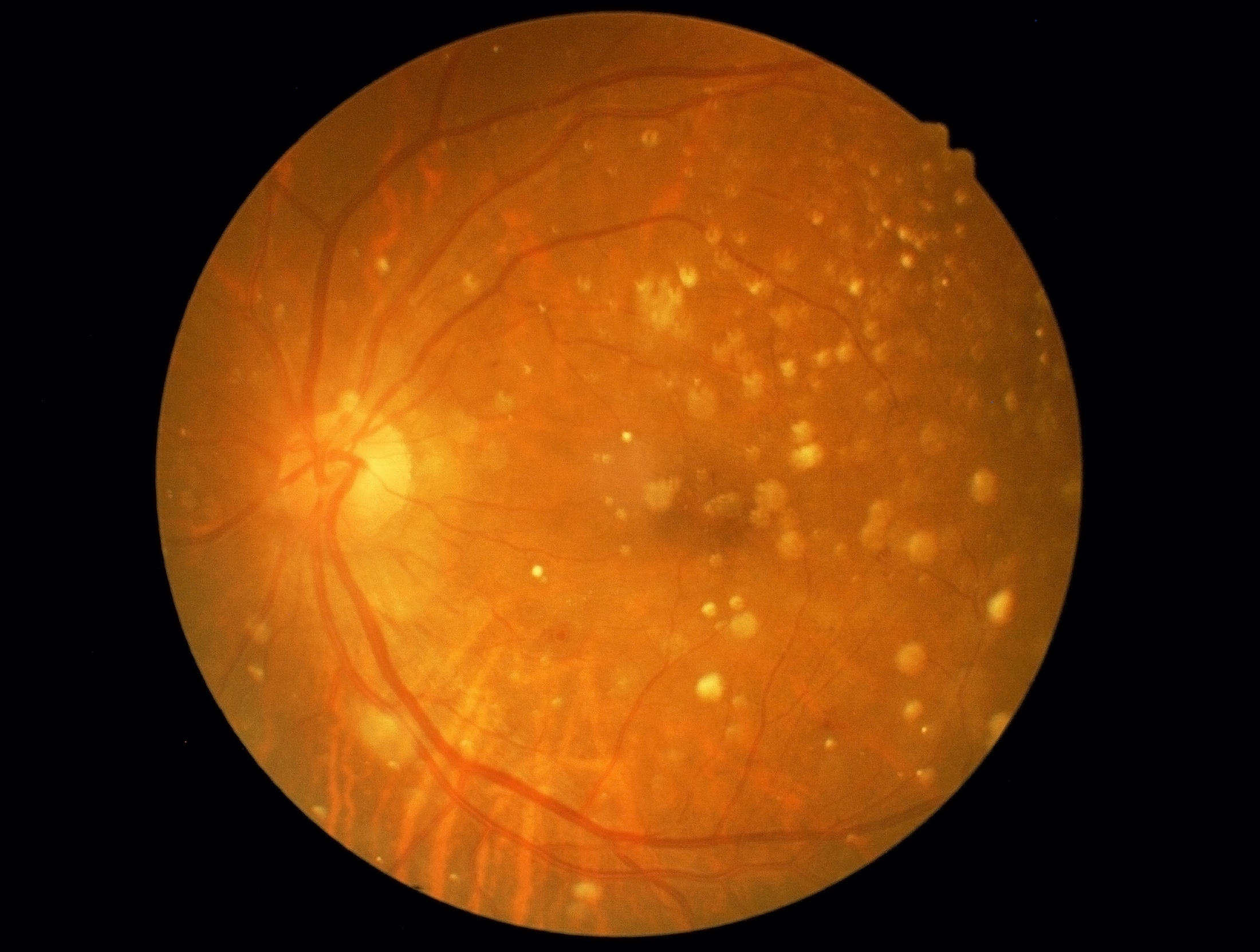
Macular degeneration or age-related macular degeneration (AMD) is typically an age-related ocular disease that causes central vision loss. AMD is categorized into two separate types: “dry” and “wet”. Both types of AMD require a dilated eye exam, imaging, and confirmation by a specialist.
Dry AMD may cause a slow decline in central vision. There can be a break down in one of the layers of the retina called retinal pigmented epithelium. There may also be drusen which are yellow deposits beneath the retina. These developments cause blurred or distorted central vision.
Wet AMD causes a sudden change in vision due to the formation of weak blood vessels which can leak and cause significant distortion and permanent vision loss.

Causes for this disease are strictly age-related. Unfortunately, there is not a cure of either type of macular degeneration. The best prevention is early detection through the form of yearly eye exams.
There is currently no treatment for dry AMD; however, there are nutritional supplements that may help slow the progression, including a diet rich in lutein, zeaxanthin, vitamin C, Vitamin E and zinc.
Treatment of wet AMD may include:
If you observe vision distortion, contact our office for an evaluation by one of our physicians. Treatment options will be discussed with you at your evaluation if they are deemed necessary.
Sources: American Academy of Ophthalmology, Medline Plus, National Eye Institute, and Krames